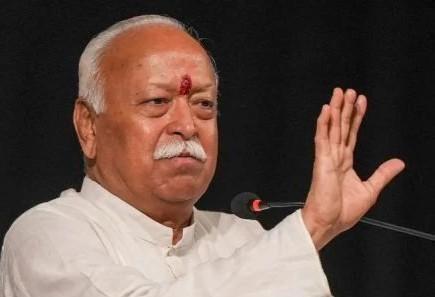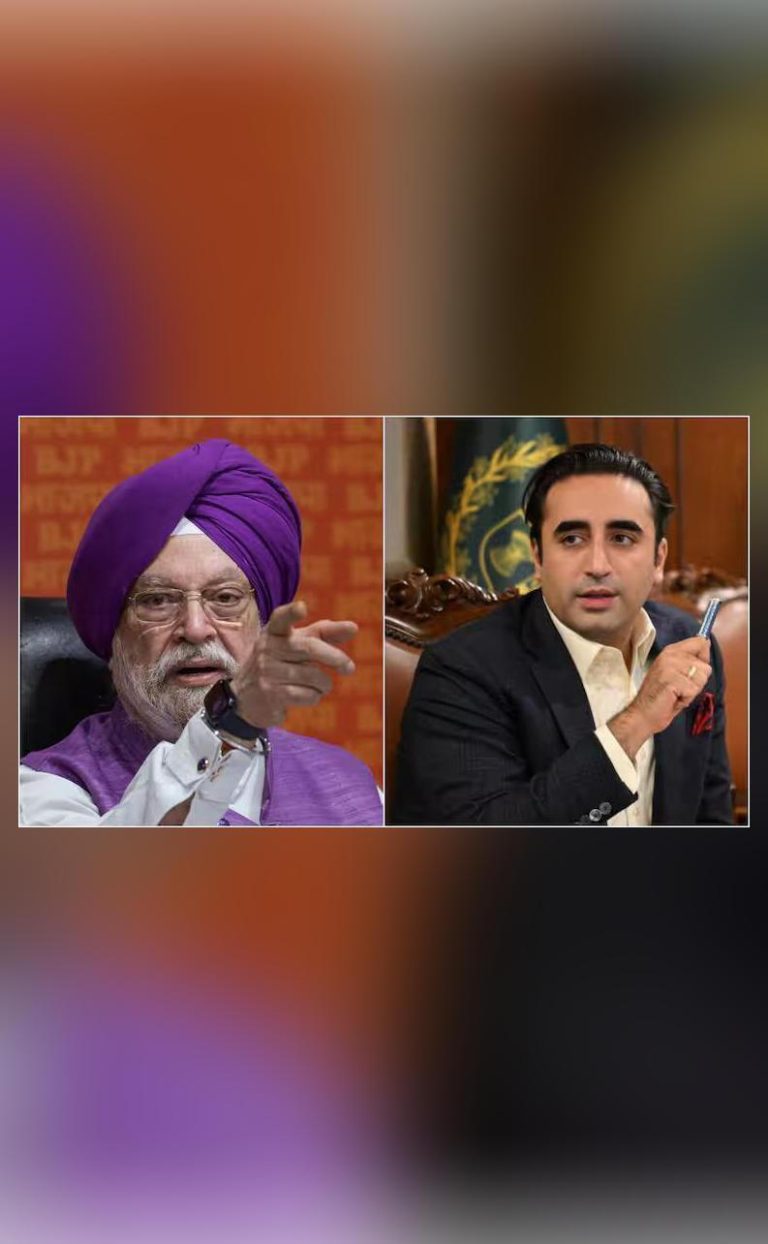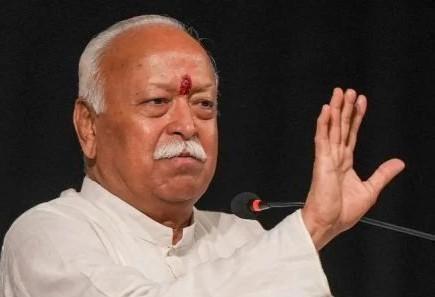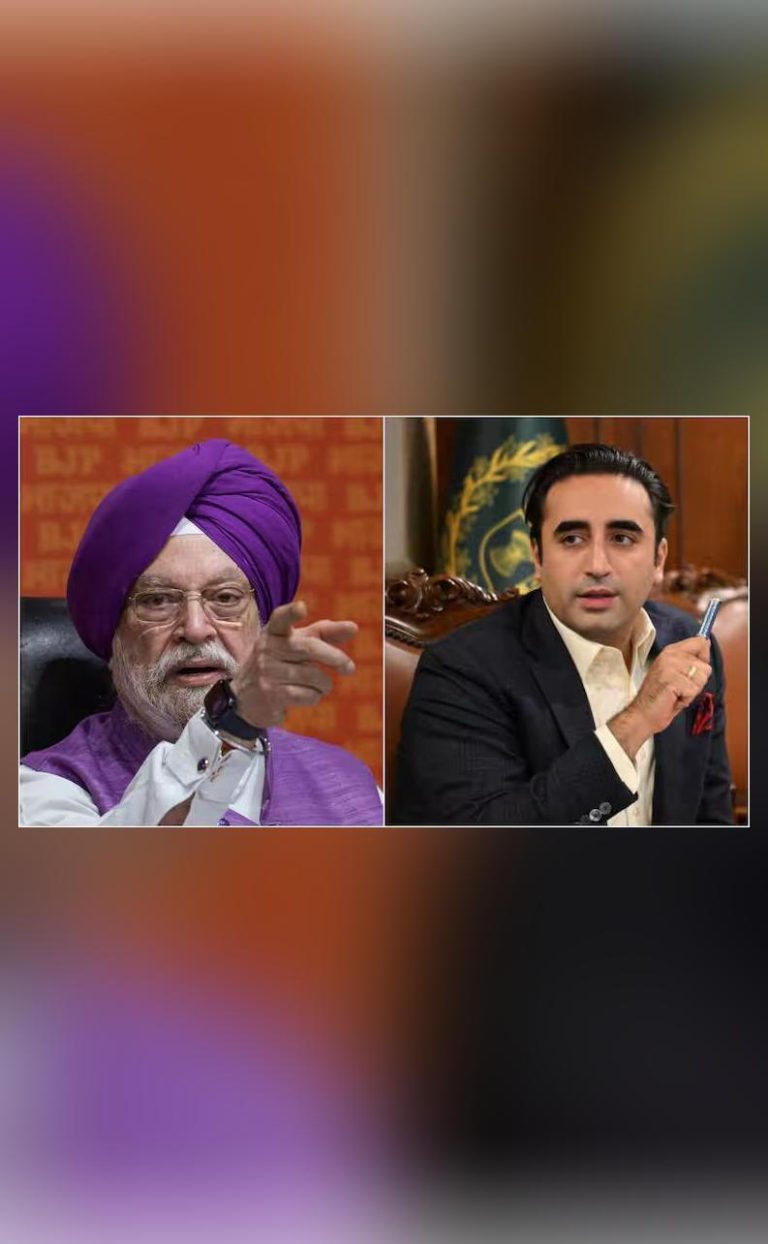
If someone turns to evil then we’ll teach lesson: Bhagwat on J&K attack
The recent terror attack in Pahalgam, Jammu and Kashmir has left the nation in shock and grief. In the aftermath of this heinous act, RSS Chief Mohan Bhagwat has made a significant statement, sending ripples across the political and social spectrum. In a televised address, Bhagwat emphasized the importance of non-violence as India’s religion, but also made it clear that the country will not hesitate to take a firm stance against “oppressors and hooligans”.
Bhagwat’s statement has sparked a heated debate, with many interpreting his words as a veiled threat to those who perpetrate violence. While some have hailed his remarks as a bold affirmation of the nation’s commitment to justice, others have criticized him for seemingly advocating for a violent response to violence.
It is essential to examine Bhagwat’s statement in its entirety to understand the context and nuances of his words. In his address, Bhagwat began by reiterating the importance of non-violence as a fundamental aspect of Indian culture and values. He emphasized that non-violence is not just a means to an end, but an essential part of India’s national identity.
“Non-violence is India’s dharma, and it is our duty to uphold it,” Bhagwat said. “We never harm or disrespect our neighbors, and we will continue to uphold this principle.”
However, Bhagwat also cautioned that in the face of evil, India will not hesitate to take a firm stance. He emphasized that the duty of the king, or the government, is to protect its people, and that this duty cannot be compromised.
“If someone is bent on being evil, what is the cure?” Bhagwat asked. “The king’s duty is to protect the people, and he will do his duty.”
Bhagwat’s statement has been criticized by some as being ambiguous and open to misinterpretation. Some have argued that his words seem to suggest that violence can be justified as a means of combating evil, which is a departure from the principles of non-violence that he initially emphasized.
However, it is important to consider the historical and cultural context in which Bhagwat made his statement. India has a long and complex history of dealing with internal and external threats, and the country has often been forced to adopt a pragmatic approach to ensure its security and well-being.
In this context, Bhagwat’s statement can be seen as a nuanced affirmation of India’s commitment to non-violence, while also acknowledging the need for a robust and effective response to threats and challenges. Rather than advocating for violence, Bhagwat’s words can be interpreted as a call for the government to take a firm and decisive stance against those who perpetrate violence and harm innocent people.
Bhagwat’s statement has also been seen as a response to the growing concerns about the threat posed by terrorist organizations and other militant groups. In recent years, India has faced a range of security challenges, from terrorist attacks in Kashmir to threats from Pakistan-based militant groups.
In this context, Bhagwat’s statement can be seen as a message to these groups that India will not be intimidated or deterred from taking action to protect its people and interests. Rather than seeking to engage in a cycle of violence and retaliation, Bhagwat’s words can be seen as a call for a more strategic and effective approach to dealing with these threats.
In conclusion, Bhagwat’s statement on the Jammu and Kashmir attack is a complex and nuanced one that requires careful consideration. While some may interpret his words as advocating for violence, it is essential to recognize the historical and cultural context in which he made his statement.
Rather than seeing Bhagwat’s words as a departure from the principles of non-violence, it is important to recognize that his statement is a call for a firm and effective response to the threats and challenges that India faces. As the nation continues to grapple with the complexities of security and terrorism, Bhagwat’s statement serves as a reminder of the importance of upholding the principles of non-violence while also taking decisive action to protect the nation and its people.
Source: https://youtu.be/SpAKVWl5wII




